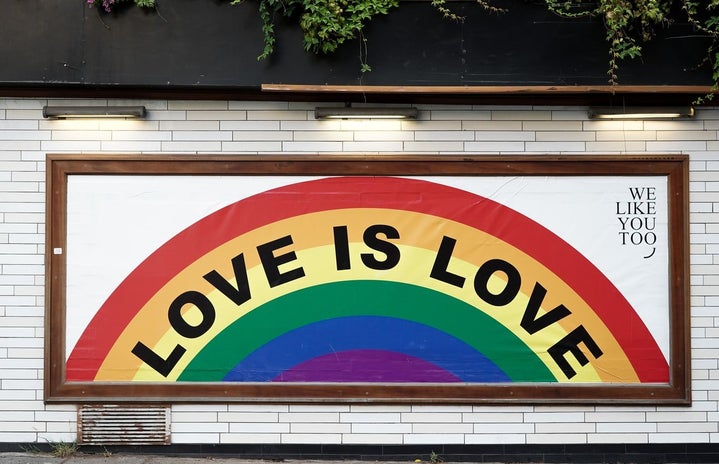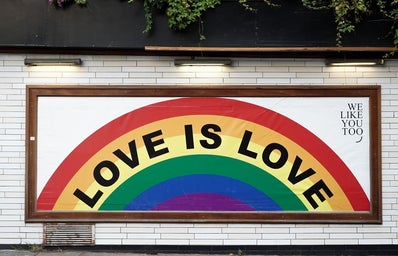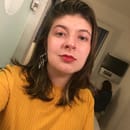Since October 11th was the National Coming Out Day in the United States, this, as much as ever, is the time to celebrate the stories about and made by LGBTQ+ individuals. Here are six authors that are a part of the community and their LGBTQ+ premised works!
- Vitor Martins
-
Vitor Martins is a Brazilian author with two books published in his home country, along with several short stories. His novels usually talk about queer teenagers figuring out themselves and the world around them while falling in love, and he likes to show how love can happen literally everywhere, let it be in a small apartment or in a pirate ship. Vitor lives in São Paulo with his boyfriend, two cats and a Journalism diploma.
With compliments from New York Times bestselling authors Rainbow Rowell and Rachel Lippincott, Here the Whole Time, his debut book, is a Brazilian body-positive YA love story between two boys, to be published in the U.S. in fall 2020 talks about Felipe, who can’t wait for winter break so he can get away from his classmates who bully him for his weight. But he did not expect that Caio, his neighbor and life-long crush, would be staying with him for the next 15 days.
It’s a light, quick reading that promises to warm every reader’s heart with Vitor Martins simple and impeccable writing.
- Lucas Rocha
-
Lucas Rocha is a Brazilian writer with a Library Science major and a master’s in information science, who has been publishing short stories and collections for a long time until, in 2018, Where We Go From Here was published in Brazil with the title Você Tem a Vida Inteira. His stories follow the LGBTQ+ theme, like the 2020 book Cinco Dias Para o Fim do Mundo, with a female protagonist who’s in love with her best girlfriend.
The novel follows three gay young adults in Brazil whose lives become intertwined because of HIV, and although it makes a point on how far we’ve come with the treatment of the virus, the story enlightens the long path society is yet to take on how it treats people with HIV, specially gay people. Ian has just been diagnosed with the disease at the same time he meets Victor, who’s also getting tested while questioning his relationship with Henrique, who has been living with HIV for the past three years. Where We Go from Here is a book about love, friendship, and breaking stigmas.
- Noelle Stevenson
-
Noelle Stevenson is a North American author, illustrator and award-winning cartoonist. The author of the HQ series, and soon to be TV show, Lumberjanes, Stevenson has collaborated with Disney, Marvel and DC Comics. She also is the creator of the 2019 remake of She-Ra on Netflix, known for the LGBTQ+ representation, such as openly lesbian characters, and a non-binary character who uses neutral pronouns – Noelle herself being a non-binary lesbian, married to Molly Knox, screenwriter for the new Disney cartoon The Owl House.
Nimona is the young adult graphic novel that launched Noelle Stevenson and it follows the adventures of Nimona, a sidekick to the villainous Lord Ballister Blackheart. She’s an impulsive young shapeshifter, who’s still learning about her powers, that may be, to Ballister’s greatest worries, more dangerous than he once though.
What started with an acclaimed web comic, winner of the Cartoonist Studio Prize, Nimona is a brilliant epic story with the best elements of the Fantasy genre, like dragons, arch-nemeses, and, as a mark of Noelle’s writing, a lot of symbolism.
- Akwaeke Emezi
-
Emezi was born in Umuahia, Nigeria, but grew up in Aba, and lives in the United States. They and their sister Yagazie used storytelling to escape the riots, dictatorship, and dangerous reality of their childhoods, and, with this background, began to write short stories at the age of five. Their art practice is in the metaphysics of Black spirit and uses video, performance, writing, and sculpture to create rituals processing their embodiment as a nonhuman entity/an ogbanje/a deity’s child. They won several awards for Freshwater, and, in 2017, received a Global Arts Fund to engage in their videoart project The Unblinding, as well as Sozopol Fellowship for Creative Nonfiction fund.
Centered around Ada, a young Nigerian woman who develops separate selves, Freshwater, their debut , is a dark, yet powerful take on gender dysphoria. In Ada, lives a supernatural spirit named Asughara – and that’s how the author sees themselves. Emezi identifies as an Ogbanje, which, in lgbo (one of the biggest ethinical groups in Africa) culture means “an intruder spirit that takes a human form, resulting in a child of the third gende”r – the writer has a female body but uses neutral pronouns and sees themselves as non-binary.
When Ada moves to the USA for college, the group of selves within her grows in power and agency. A traumatic assault leads to a crystallization of her alternate selves: Asụghara and Saint Vincent. It’s not easy reading like the ones before on this list, but a necessary one, that promises to be one of the best books you’ll ever read.
- Kabi Nagata
-
Nagata herself states that she does not hesitate to expose her private life for the sake of creating interesting content for her manga series, and she decided to do so because of a lack of work after she became an artist, which lead to several mental health issues, and a drinking problem – Nagata addresses it in her new piece, A Story of Me, Trying to Escape from Reality, Just to be Worn Out. The writing process involved her writing down things that have happened to her, and her feelings, in the form of a bulleted list, and rearranging the items to form a narrative.
My Lesbian Experience with Loneliness is a beautifully executed autobiographic manga. The artwork walks the reader through a woman who’s exploring her sexuality, her mental health and, overall, the world around her. It’s painful, and it opens the eyes of the audience to an unspoken reality: the life of a homosexual woman in Japan. The manga tells the story of Kabi, a woman who decided against attending university, and spent her early twenties in a haze of depression, drifting through jobs at stores and bakeries and, when she finds the energy to do so, she writes manga.
The dark humor that fills the pages helps when the commentary on the Japanese extremely conservator society gets too dark, but the message is not only clear; it’s painful, and it opens the eyes of the audience to an unspoken reality: the life of a homosexual woman in Japan.
——————————————————————-
The article above was edited by Isabella Gemignani.
Liked this type of content? Check out Her Campus Casper Libero for more!


